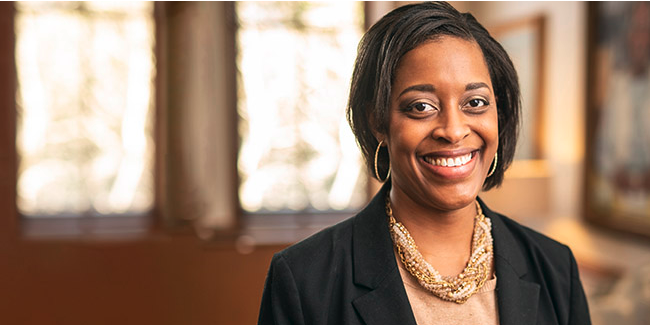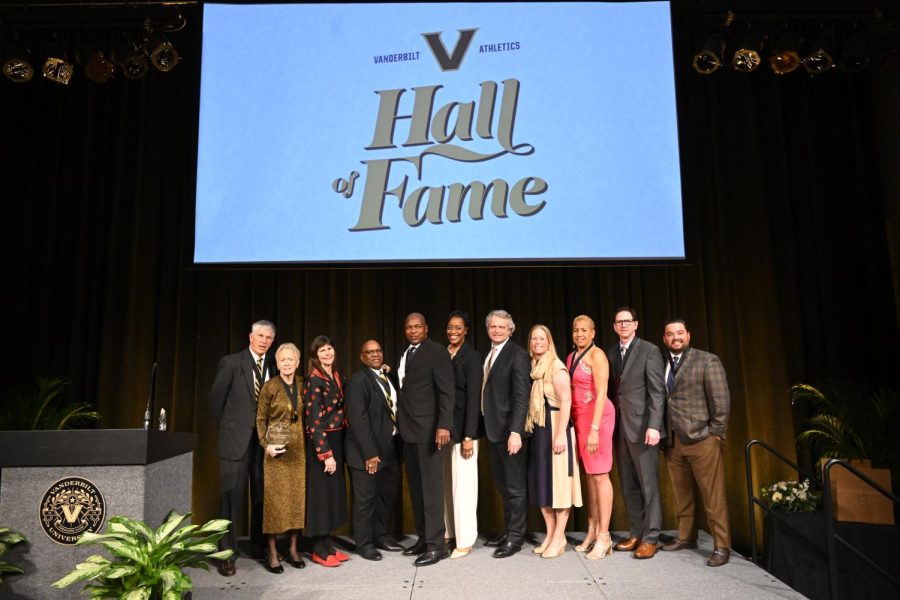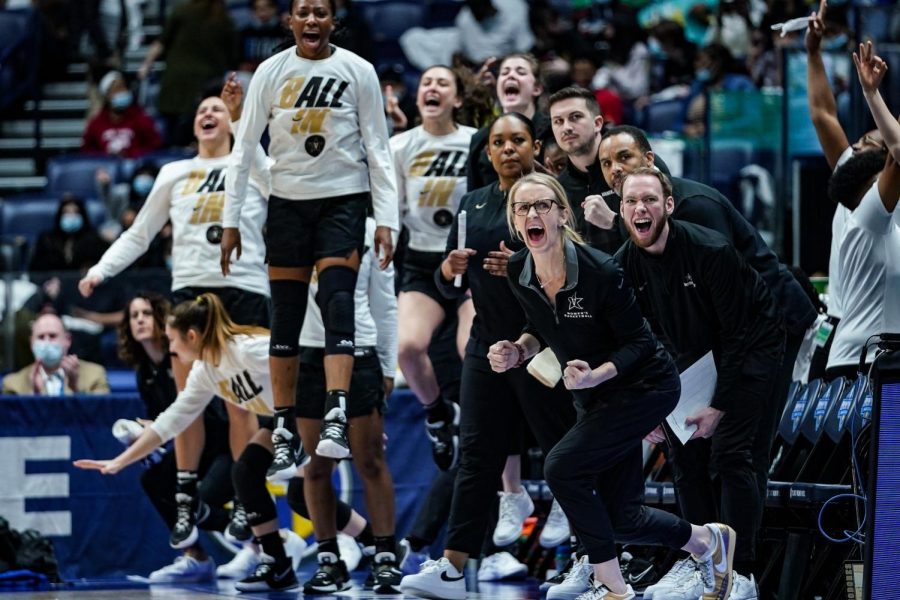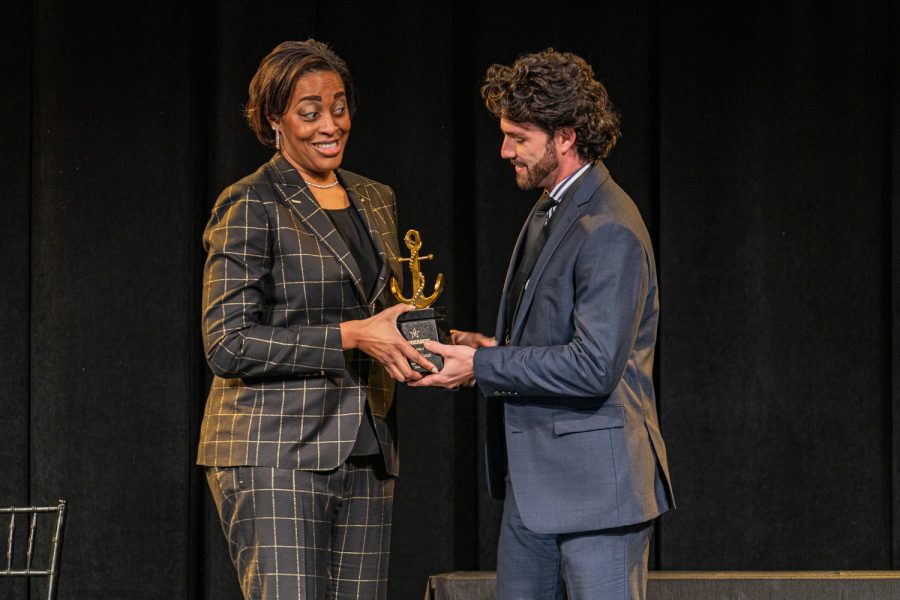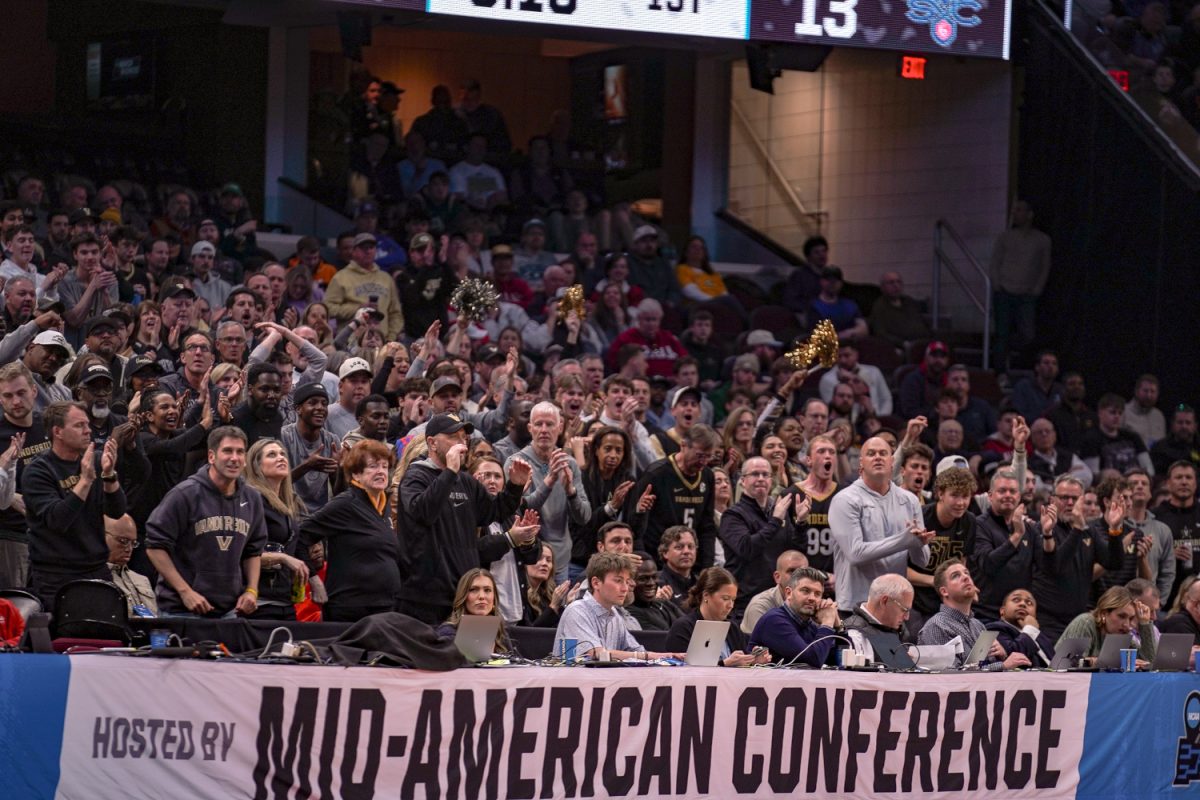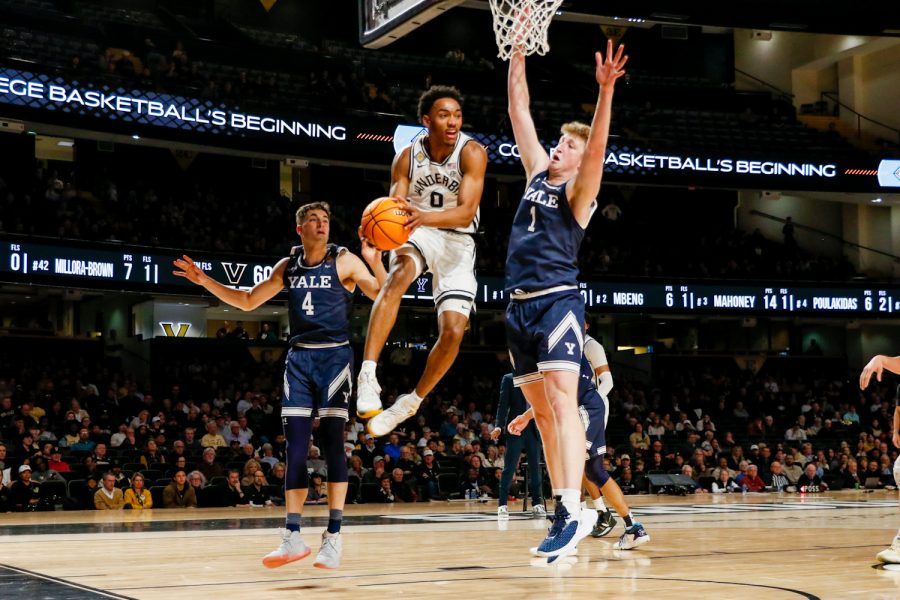Vanderbilt athletic director Candice Storey Lee was invited to speak on her life and experience at the recent espnW Women + Sports Summit on Oct. 20. The conference focused on bringing together women within and around the sports world in an effort to build community and share stories to promote change and create more opportunities for underrepresented groups.
The summit was held for the first time in an in-person setting since the start of the COVID-19 pandemic at The Lodge in Torrey Pines, La Jolla, California. Other featured guest speakers included actress Halle Berry, former Team USA women’s soccer captain Julie Foudy, singer Sarah McLachlan, espnW founder Laura Gentile, Duke athletic director Nina King and many others.
Athletic directors Lee and King participated in a panel discussion hosted by Michelle Steele of ESPN focusing on their shared experiences as Black female professionals in collegiate administration. Lee and King are two of only three female athletic directors within the Power Five conferences and Steele shared that 90 percent of athletic directors at Division I colleges are white.
Lee, a former captain of the Vanderbilt women’s basketball team, spoke about how her path has been unique in that she has risen through the ranks while staying within the same organization. In her story, she shared how her first mentor, David Williams, gave her an opportunity to learn as her playing career at Vanderbilt was ending.
“He told me, ‘Student-athletes do so much, but they rarely have time to get practical experience. And I would love to give you the chance to do an internship, but there are no guarantees.’” Lee said.
This internship put Lee in a position to understand the inner workings of college administration, later turning into a job that connected her with mentor Carla Williams, who would go on to become the first Black woman to serve as an athletic director in the Power Five.
“Most people will move because they can’t get an opportunity where they are. I was fortunate to do that all at Vanderbilt,” Lee said.
Steele and King then discussed the concept of “open doors” with respect to Lee’s career advancement, agreeing that mentorship is a key component of opening those doors for women and people of color. But issues still remain in the world of inclusion, even at Vanderbilt.
“Now I’m a three-time Vanderbilt grad, I bleed black and gold, I’ve been there half my life, and I don’t know that there’s ever been a day where I’ve been completely comfortable,” Lee said.
The solution for Lee in her journey to finding her sense of belonging in spaces she describes as “not designed for us,” was to make it difficult for people to exclude her. She mentioned her graduate and doctorate degrees along with a shift in her mindset as ways that she coped.
“I feel like part of my responsibility along my journey was to make sure I checked as many boxes as I could because I knew it was going to be easy to exclude me,” Lee said.
However, she does not justify this dynamic, arguing that it is a sign of the injustice in the system.
“Unfortunately, the burden is on us to do that because again, the spaces are not designed for us,” Lee said. “But if it’s an outcome that you want, you have to fight for it. And it’s hard.”
In the effort to change the environment around the space of college athletics, Lee focused on the role of decision-makers and the efforts they make in rewarding qualified candidates.
“I hate to say the word courage; because it shouldn’t be courageous to give people an opportunity they’ve earned,” Lee said. “But we need more people to have the courage to do that.”
Despite her efforts, Lee emphasized the reality of the struggles of the space, recounting a time in the suite at a football game when she was meeting with donors as the deputy athletic director.
“A lady tapped me on the shoulder, I have to believe she’d seen me there before, and said that the bathroom needed some more toilet tissue, asking ‘Don’t you work for housekeeping?’” Lee said.
At the time, Lee reintroduced herself to the lady as the deputy athletic director, before solving the problem without responding to the nature of the comments.
“That’s not being seen right?” Lee said. “There’s nothing wrong with being in housekeeping, but I had on a blazer. I had on a credential. I know she’d seen me, because I’d seen her.”
Steele then asked Lee if she remembered how the lady reacted at the time, to which Lee responded with a comparison of responsibility between the two women in the story.
“The other thing is that you have to be careful in what your reactions are, because I’ll get judged on my reaction, and she won’t,” Lee said.
The conversation of the panel discussion then shifted to an overview of the major issues in college athletics generally and within the Vanderbilt community.
Lee, as a former student-athlete, had a unique perspective on the issue of students profiting on their name, image and likeness (NIL) under the new NCAA rules.
“I don’t think it has had quite the ripple effect that many anticipated,” Lee said. “I think it’s headed in the right direction.”
Both Lee and King discussed the implications of the NIL rule for student-athletes in non-revenue sports. King, in particular, mentioned how one Duke student was prevented from going on a personal book tour because of their status as an athlete. But overall, both athletic directors supported the move to allow students to profit under the new rule.
“It’s about time,” Lee said. “I don’t know what kind of NIL deal I would have had, but it would have been related to food, I’m sure!”
Lee also spoke to her priorities going forward with the Vanderbilt program, mentioning the strengths of the university as an elite academic institution with SEC sports and the city of Nashville. She also mentioned peers such as Notre Dame and Stanford as analogues for her vision of Vanderbilt.
“We have a wonderful value proposition and we have not quite realized it in some pockets,” Lee said. “I would like to see us have sustainable success across our entire portfolio.”
Finally, Lee shared two pieces of advice that she has cherished in her life: “do the next thing right” and “approach situations with curiosity instead of judgment.”
Going forward, the trail-blazing Lee will need to apply both perseverance and temperance in order to achieve her goals and lead Vanderbilt into a new era, creating opportunities for women and people of color along the way.
The full interview can be found here.

